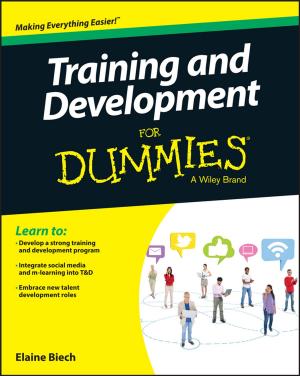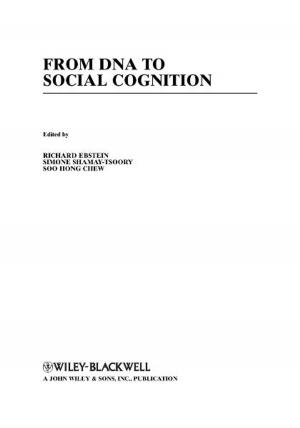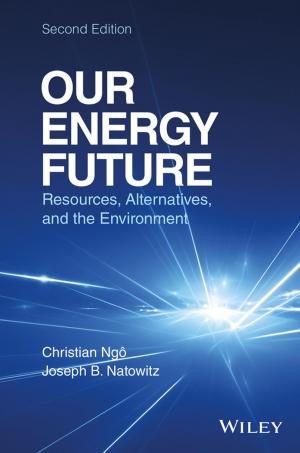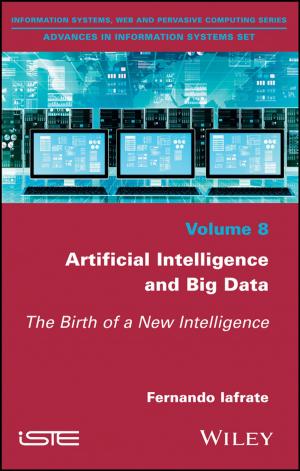Textual Information Access
Statistical Models
Nonfiction, Computers, Advanced Computing, Information Technology| Author: | ISBN: | 9781118562802 | |
| Publisher: | Wiley | Publication: | February 4, 2013 |
| Imprint: | Wiley-ISTE | Language: | English |
| Author: | |
| ISBN: | 9781118562802 |
| Publisher: | Wiley |
| Publication: | February 4, 2013 |
| Imprint: | Wiley-ISTE |
| Language: | English |
This book presents statistical models that have recently been developed within several research communities to access information contained in text collections. The problems considered are linked to applications aiming at facilitating information access:
- information extraction and retrieval;
- text classification and clustering;
- opinion mining;
- comprehension aids (automatic summarization, machine translation, visualization).
In order to give the reader as complete a description as possible, the focus is placed on the probability models used in the applications concerned, by highlighting the relationship between models and applications and by illustrating the behavior of each model on real collections.
Textual Information Access is organized around four themes: informational retrieval and ranking models, classification and clustering (regression logistics, kernel methods, Markov fields, etc.), multilingualism and machine translation, and emerging applications such as information exploration.
Contents
Part 1: Information Retrieval
- Probabilistic Models for Information Retrieval, Stéphane Clinchant and Eric Gaussier.
- Learnable Ranking Models for Automatic Text Summarization and Information Retrieval, Massih-Réza Amini, David Buffoni, Patrick Gallinari,
Tuong Vinh Truong and Nicolas Usunier.
Part 2: Classification and Clustering - Logistic Regression and Text Classification, Sujeevan Aseervatham, Eric Gaussier, Anestis Antoniadis, Michel Burlet and Yves Denneulin.
- Kernel Methods for Textual Information Access, Jean-Michel Renders.
- Topic-Based Generative Models for Text Information Access, Jean-Cédric Chappelier.
- Conditional Random Fields for Information Extraction, Isabelle Tellier and Marc Tommasi.
Part 3: Multilingualism - Statistical Methods for Machine Translation, Alexandre Allauzen and François Yvon.
Part 4: Emerging Applications - Information Mining: Methods and Interfaces for Accessing Complex Information, Josiane Mothe, Kurt Englmeier and Fionn Murtagh.
- Opinion Detection as a Topic Classification Problem, Juan-Manuel Torres-Moreno, Marc El-Bèze, Patrice Bellot and Fréderic Béchet.
This book presents statistical models that have recently been developed within several research communities to access information contained in text collections. The problems considered are linked to applications aiming at facilitating information access:
- information extraction and retrieval;
- text classification and clustering;
- opinion mining;
- comprehension aids (automatic summarization, machine translation, visualization).
In order to give the reader as complete a description as possible, the focus is placed on the probability models used in the applications concerned, by highlighting the relationship between models and applications and by illustrating the behavior of each model on real collections.
Textual Information Access is organized around four themes: informational retrieval and ranking models, classification and clustering (regression logistics, kernel methods, Markov fields, etc.), multilingualism and machine translation, and emerging applications such as information exploration.
Contents
Part 1: Information Retrieval
- Probabilistic Models for Information Retrieval, Stéphane Clinchant and Eric Gaussier.
- Learnable Ranking Models for Automatic Text Summarization and Information Retrieval, Massih-Réza Amini, David Buffoni, Patrick Gallinari,
Tuong Vinh Truong and Nicolas Usunier.
Part 2: Classification and Clustering - Logistic Regression and Text Classification, Sujeevan Aseervatham, Eric Gaussier, Anestis Antoniadis, Michel Burlet and Yves Denneulin.
- Kernel Methods for Textual Information Access, Jean-Michel Renders.
- Topic-Based Generative Models for Text Information Access, Jean-Cédric Chappelier.
- Conditional Random Fields for Information Extraction, Isabelle Tellier and Marc Tommasi.
Part 3: Multilingualism - Statistical Methods for Machine Translation, Alexandre Allauzen and François Yvon.
Part 4: Emerging Applications - Information Mining: Methods and Interfaces for Accessing Complex Information, Josiane Mothe, Kurt Englmeier and Fionn Murtagh.
- Opinion Detection as a Topic Classification Problem, Juan-Manuel Torres-Moreno, Marc El-Bèze, Patrice Bellot and Fréderic Béchet.















